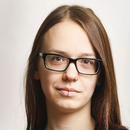Profile
Abstract
Miriam Pfordte is a doctoral researcher at the Chair of 19th to 21st Century History at Leipzig University. Prior to this position, she worked as a research assistant at the Saxon Academy of Sciences in Leipzig and at the Chair of 19th to 21st Century History before joining the project "The 'Iron Curtain' between Static Spaces and Flowing Networks. Exclusion and (Re-)Connection 1960-2010" (B09) of the Collaborative Research Centre 1199 "Spatialisation Processes under Conditions of Globalisation".
Her research interests are including the History of Infrastructures, Material Culture and Cold War History.
Professional career
- 06/2018 - 06/2019
Research Assistant, Research Project: "1918 - Chiffre für Umbruch und Aufbruch", Saxon Acadamy of Science and Humanities in Leipzig - 07/2019 - 03/2020
Research Assistant, Chair of History from 19th to 21st Century, University of Leipzig - 04/2020 - 12/2023
Doctoral researcher, Research Project: "The “Iron Curtain” between Static Spaces and Fluid Networks. Exclusion and (Re)Connection, 1960–2010", SFB 1199, University of Leipzig - since 01/2024
Doctoral researcher, Chair of History from 19th to 21st Century, University of Leipzig
Education
- 10/2014 - 07/2017
BA History, University of Leipzig - 10/2017 - 03/2020
MA Middle and Newest History, University of Leipzig - 04/2020 - 04/2023
Graduate School Global and Areas Studies
Panel Memberships
- 11/2017 - 12/2019
Student representative in the appointment committee for the new chair of Early Modern Studies at the Department of History, University of Leipzig - 04/2022 - 04/2023
Representation of the non-professorial teaching stuff CRC 1199
The dissertation project of Miriam Pfordte investigates the extent to which the extensive, politically implemented changes in cross-border infrastructures in the course of the bloc formation during the Cold War have affected the spatial perception/imagination of their users. In doing so, it attempts a new approach in historiographical infrastructure research by examining infrastructure facilities primarily from the user's perspective. It focuses on individual case studies along the inner-German border as well as the border between Czechoslovakia and the GDR and between Czechoslovakia and the FRG, within a time frame from about 1950 to 1990.
- show detailsSFB 1199/B09: The “Iron Curtain” between Static Spaces and Fluid Networks. Exclusion and (Re)Connection, 1960–2010van Laak, DirkDuration: 01/2020 – 12/2023Funded by: DFG Deutsche ForschungsgemeinschaftInvolved organisational units of Leipzig University: Leipzig Research Centre Global Dynamics (ReCentGlobe); Historisches Seminar; SFB 1199: Verräumlichungsprozesse unter Globalisierungsbedingungen
- show detailsPfordte, M.Rezension zu: Cowan, Leah: Border Nation. A Story of Migration. London 2021: ISBN 9780745341071Connections. A Journal for Historians and Area Specialists. 2022.
- show detailsPfordte, M.; van Laak, D.; Bockhorst, K.Teilung und (Wieder-)Anschluss. Infrastrukturen und Raumformate am "Eisernen Vorhang"Leipzig Research Centre Global Dynamics (ReCentGlobe) . Leipzig. 2023.ISBN: 978-3-96023-457-9
- show detailsPfordte, M.Between Worlds: Perceiving the Inner-German Border as Infrastructure, 1945–1990In: van Laak, D.; Burchardt, M. (Eds.)Making Spaces through Infrastructure. Visions, Technologies, and Tensions. Berlin/Boston: De Gruyter Oldenbourg. 2023. pp. 151–167.
- show detailsvan Laak, D.; Bockhorst, K.; Pfordte, M.Teilung und Wiederanschluss. Raumformate am „Eisernen Vorhang“Berichte. Geographie und Landeskunde. 2024. 97 (1-2). pp. 3–30.
- show detailsDinkel, J.; Nowak, K.; Pfordte, M. (Eds.)Märsche der Moderne. Varianten eines globalen PhänomensFrankfurt am Main: Campus. 2024.
-
Seminar: Inner-German environmental and nature conservation history, 1945-1995
-
Seminar: Everyday life in the shadow of the Iron Curtain. The inner-German border told in interviews with contemporary witnesses (Summer term 2022)
-
Worskhop and panel discussion: "What do you do with it afterwards? Doctoral studies for historians" (13 June 2022, together with Mathias Hack)






























































